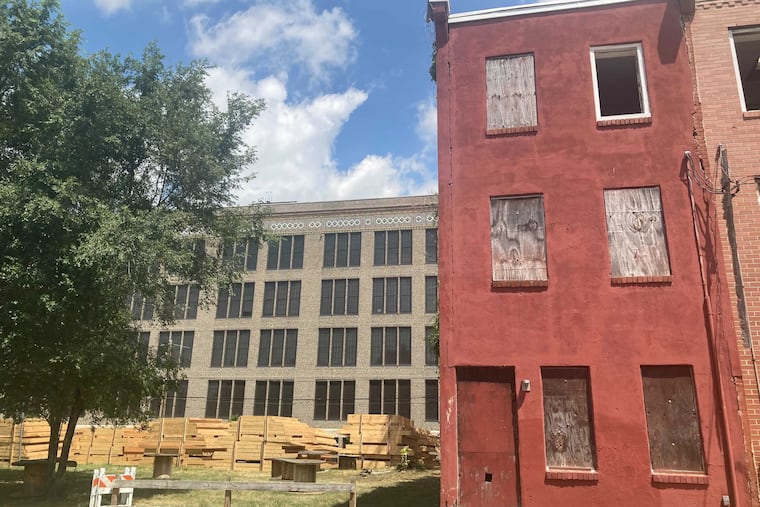What educational reform can learn from urban renewal
Education in Philadelphia is long overdue for a similar rebirth, and it needs new partnerships — especially with private entities — to grow and provide genuine choice to students.

During my daily travels, I drive by the Sharswood neighborhood, just north of Girard College, where I work. Over the years, I’ve watched this neighborhood transform — and this urban renewal project offers some great insight into education reform.
Sharswood, for as long as I can remember, wasn’t the best place to live. The Columbia Avenue riots of 1964 — a three-day outburst of violence and property damage — upended the neighborhood. Since then, a mass migration of people — almost two-thirds of Sharswood residents — abandoned the neighborhood. For decades, Sharswood was home to the Blumberg Towers, a complex of high-rise public housing projects engulfed in crime, drugs, and poverty.
Now, when I drive by Sharswood, I see a whole new neighborhood. I see renovated market-rate homes mixed in with public housing. I also see diversity — both economic and racial. In fact, Niche, a national educational consulting company, awarded Sharswood with an A for its ethnic and economic diversity.
So, what happened in Sharswood?
The Philadelphia Housing Authority rebuilt Sharswood. Undoubtedly, PHA’s renewal plan was ambitious. The decade-long, $675 million investment transformed the neighborhood.
Assuredly, much work remains. Housing inventory, much like the rest of the nation, is still low, and the PHA has an extensive waiting list.
Regardless, Sharswood is on the rise, thanks to the public sector partnering with the private sector. By collaborating with developers and builders, PHA brought in not only hundreds of millions of dollars in private investment into Sharswood but also increased choices for home buyers and renters.
Hopefully, you see where I’m going with this.
Education — especially in Philadelphia — is long overdue for a similar renewal, and it needs new partnerships — especially private entities — to grow and provide genuine choice to students.
Expanding educational opportunities means inviting more partners into the equation. This means more charter schools (both in-person and cyber) and private schools.
More importantly, this also means providing financial resources to those in need. For school choice to thrive, students and families, especially those in low-income households, need scholarships, educational savings accounts, and tax credits to escape their underperforming neighborhood schools.
In Pennsylvania, we have several reform options on the table. We can achieve educational choice by expanding current programs, like the Educational Improvement Tax Credit and Opportunity Scholarship Tax Credit programs, and legislating new ones, like Lifeline Scholarships. We could also enact open enrollment and break the chain that binds our children’s education to their zip codes.
Expanding educational opportunities means inviting more partners into the equation.
Fortunately, these are bipartisan solutions that most Pennsylvanians support. If we can spend hundreds of millions of dollars renovating a neighborhood, we can do the same for educational choice.
Critics often oppose school choice because they fear the public and private sectors mingling. Moreover, many public education officials — especially teachers’ unions — actively lobby against competition, such as increased educational options at charter and private schools.
Unfortunately, students are on the losing end of these lobbying efforts. For the 200,000 Pennsylvania students attending the commonwealth’s lowest-performing schools, choice isn’t an option. Maybe this is why many schools, especially in Philadelphia, look like the old Blumberg Towers.
As Sharswood’s redevelopment aptly demonstrates, the public sector cannot do it alone. A good educational system provides a myriad of choices — everything from traditional brick-and-mortar schools (both public and private) to cyber-based homeschooling. And an even better system empowers all students and families to make those choices.
Education reform can learn a lesson or two from urban revitalization. With the support of private entities, Pennsylvania education can experience a similar renewal and provide the choice students need to thrive and prosper.
When we look toward the future of education, do you want to see more decay or more urban renewal? Too many Pennsylvania families are long overdue for a genuine choice.
David P. Hardy is president of Girard College and a distinguished senior fellow at the Commonwealth Foundation.